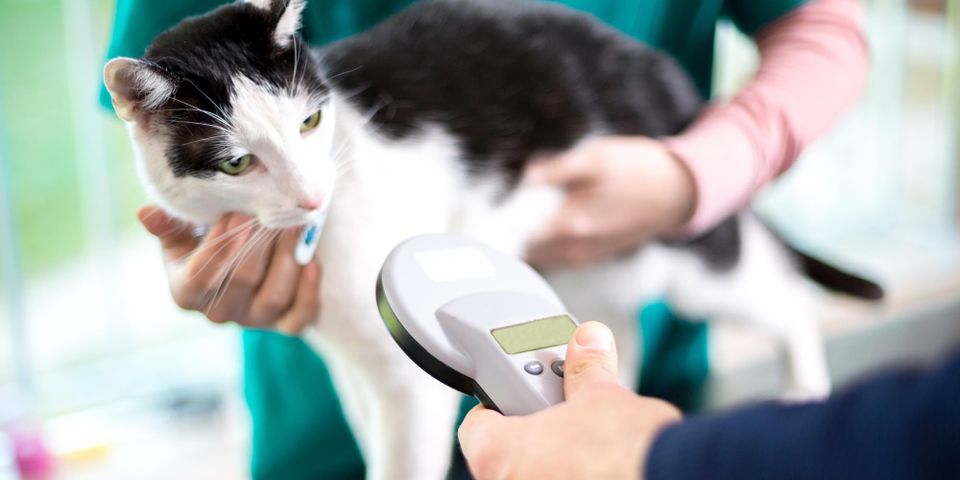
If you’ve recently adopted a dog or cat, you may think that an identification tag on their collar will protect them if they go missing. Although collars and tags are essential, they may fall off and leave lost animals without the proper identification to get home safely. It’s why veterinary clinics urge owners to microchip their pets. If you’ve yet to invest in pet microchipping, here are answers to a few frequently asked questions to shed more light on this subject.
5 Frequently Asked Questions About Microchipping
What is a microchip and what information does it store?
Microchips are tiny electronic chips housed within a small glass cylinder. The entire unit, which is implanted under an animal’s skin, is no bigger than a grain of rice.
The chips store one identification number. When a lost pet is found, this number is cross-referenced against a secure registry to locate the owner.
How do veterinary clinics implant the device?
 Similar to a pet vaccination, chips are injected under the skin with a hypodermic needle. Implanting is quick and doesn’t require anesthesia or surgery. For convenience, you can have microchipping completed during another routine surgical procedure—such as spaying or neutering.
Similar to a pet vaccination, chips are injected under the skin with a hypodermic needle. Implanting is quick and doesn’t require anesthesia or surgery. For convenience, you can have microchipping completed during another routine surgical procedure—such as spaying or neutering.
How can microchips help you reunite with a lost pet?
When a lost animal is found, a humane society or shelter uses a scanning device to locate the microchip and retrieve the stored identification information. After referring to the registry, they’ll inform you of your pet’s location.
Is pet microchipping effective?
Microchipping is proven to help missing animals reunite with their owners. Research shows that lost dogs with microchips are returned to owners over 52% of the time; whereas those without chips return home only in about 22% of cases. Similarly, owners are reunited with microchipped cats 38.5% of the time. Unchipped felines, however, were returned less than 2% of the time.
How do you know that a microchip is still working?
During routine pet exams, have your veterinary clinic check that the microchip is still functional. If adjustments are necessary, they’ll make them. In addition, visit a veterinary hospital if the injection site ever appears infected or swollen. Problems with an implant should be promptly addressed.
If collars and identification tags are the only resources you have to find a missing pet, visit Tanner Veterinary Clinic for an upgrade. Serving families in the Russellville, AR, area, this veterinarian offers convenient and affordable pet microchipping as well as many other pet care services, including spaying, neutering, and vaccinations for both cats and dogs. To learn more about their capabilities, visit this animal hospital online. If you’d like to schedule a convenient pet exam, call a friendly staff member at (479) 968-3535.
About the Business
Have a question? Ask the experts!
Send your question

